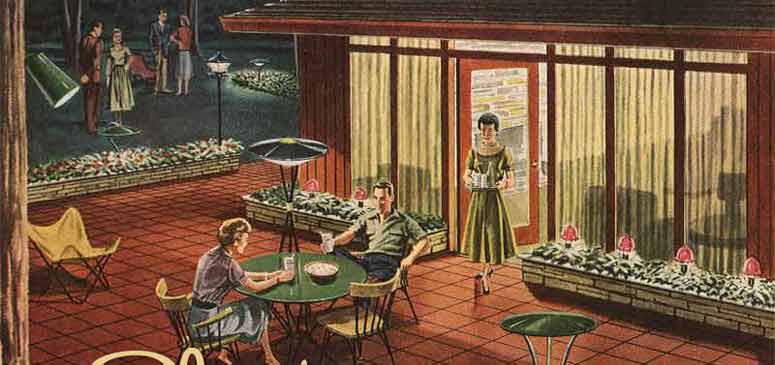

Last day of school. Last lunch, last walk to the bus stop, last wave goodbye. It’s rather alarming how quickly that year went, and I’d prefer not to think about it. So I won’t! Done and done. The kindgarten graduation ceremony was not, thankfully, a graduation ceremony. No diplomas, just an adorable program of adorable songs warbled out by adorable kids to a beaming audience. All the classes were combined, so the event took place in the auditorium – and that meant lots of parents, and many many videocameras. There was probably more video equipment in that room than the entire CBS network possessed in 1960. Afterwards we went to Gnat’s classroom for photos with the teacher and general manic glee. The boys were being boys, which meant running into each other head on and beating each other up and shouting HIYA! The girls were screeching and laughing and screaming and mugging for the cameras. The parents all had a slightly dazed look – I’m going to be cooped up with this crack monkey for the next three months? Eventually the school drained out, and the kids ran laughing into the summer afternoon. Free! Even heard the time-honored “no more teacher’s dirty looks” chant. How are these things transmitted? Is there a special children's frequency adults lose the ability to hear - and if so, what else is it telling them? Gnat actually sang the "Jingle bells, Batman smells" song one day. Didn't get it from me. Some succubus in the shape of Bart Simpson perches on her bedpost at night, I fear. Oh, to be in the teacher’s lounge after the last kid left. I imagine they brought out the good stuff. Quality gin and Chesterfields. Off to work, then back home – spent a fast hour working on a new site I should begin tomorrow: Bathing Beauties, or, swimsuit photography from the newspaper archives. You’ll like it, and it’ll be a nice change from the other unending updates. Now if you’ll excuse me, I have to write a column and finish “24,” so I’ll leave you with this week’s Black And White Theater feature. I apologize for the number of pictures, but I think it’s worth it. It would be easier if I just linked to a webpage written by someone who knew far more about this subject than me, eh? It would. But I didn’t. So, without additional rhubarb: This week’s movie. (All frame-grabs c. Warner Bros., obviously, and used here for review purposes.)
Not what you expect. Of course, I don’t know what you expect. I expected more of the same, more backstage hijinks and frothy unconvincing romance in which true passion consists of mashing one’s face against someone else’s head as hard as possible. (The objective to kissing back then seemed to maximum capillary rupture.) But since I come to these movies knowing nothing, I’m always surprised – usually by the things knowledgeable critics have known since, oh, 1933. In this case, it’s the presence of the Depression, which hangs over every scene, and builds the movie to a rather surprisingly grim and downbeat conclusion. Plus 100 girls playing white violins!
Well, sez them; I preferred the ones in “Footlight Parade,” but it’s a matter of taste. Everyone knows the first song – “We’re in the Money,” complete with giant quarters, women wearing clothing made entirely of coins, dancers emerging from a big box with a massive dollar sign on the front. I’d never seen it in context, and context is everything. It had always seemed like a ridiculous piece of graveyard whistling, if not downright cruelty – who in the audience really wanted to see some people dancing around proclaiming they had a lot of what it took to get along? Rub it in our noses, why doncha? But the scene is portrayed as a rehearsal for a show – and the rehearsal is cut short when the sheriff shows up to repossess the sets, because the backers defaulted. Everyone’s immediately thrown into unemployment. So much for the in-money-being, apparently, and don't think that was lost on the audience; probably came as a relief. First, however, we see the usual parade of chorines, and it’s a roll-call of 30s facial archetypes:
Uh huh.
Mm-hmm. Your best friend's kid sister.
Yep.
Hamina hamina hamina. But that’s just me, perhaps. I guess that was the point: something for everyone. The scene does have one moment that confirms what I said last week: at some point, the movies of the 30s will make no sense to anyone. The singer walks right up to the camera and reprises “We’re In the Money” – in pig latin. Combine it with her gigantic silvery face, towering above the audience, and you have a deeply odd moment. (Click here to hear an Quicktime excerpt - 380 KB.) The plot? Well, three good-hearted chorus girls of varying degrees of cynicism attempt to snare a guy. The purest of the batch – Ruby Keeler, dancing like a swinging sack of horse feed – is mixed up with a piano player / songwriter who just happens to be heir to some unbelievable fortune, which probably totals four million dollars. His evil brother, duly moustached and tuxed 24/7, attempts to stop the marriage, and romantic misunderstands of a comic nature result. The real pleasure for the audience was watching the canny showgirls put one over on the stuffed shirts and money-bag sourpusses – but since this is America, everyone’s jake in the end, just in time for the Busby-o-rama that concludes these films. How modern this must have seemed in ’33:
Even though a closeup shows that a certain amount of non UL-approved cordage was required:
Guess who’s back? He’s credited as the “Pettin’ in the Park Baby.” Ladies and Gentlemen, Billy Barty, complete with phallic stilletto:
Of course, he’s back only in the sense that I watched the movies out of sequence; this movie came before “Footlight Parade,” discussed last week. A rain shower catches the lovelies unprepared, and they strip down in a gigantic multi-level set:
Who pulls back the scrim? Why, the Fruit of Sexual Congress Sprite, who has left his carriage, donned a slicker, and slapped on that unnerving leer.
Consider: the dude’s last movie was “I/O Error,” released in 2001. It’s the final number that tells you this is ’33: “The Forgotten Man." It opens on a streetcorner – and note the German Expressionist skyscrapers in the background.
The song is an ode to fellas done wrong by Old Man Depression, sung by a tough moll who’s probably meant to be a prostitute. “Remember my forgotten man? You put a rifle in his hand,” she sings, staring straight at us. “You sent him far away; you shouted hip-hooray – but look at him today.” She sounds wearily contemptuous of everything. Even him.
It’s a bluesy tune, but it’s not a toe-tapper. Or a pulse-quickener. In fact it’s the sort of song that does not, and will not, have a happy ending. A cop comes along, rousts a guy sleeping on the street; the singer opens the man’s coat to shame the cop:
He's a vet, you see. Leave him be, ya lousy bull. Now the number drops the singing, takes on a martial tone, and we flash back to the troops leaving for the war. A little bit of "All Quiet on the Western Front" here, perhaps:
The people on the curb are actually standing on a walkway that whisks them past at an exaggerated speed; the effect is heady and disorienting, as it might have been to a soldier making his first proud goodbye.The patriotic hoopla is followed by the troops returning, marching in the opposite direction:
Is this what comes to mind when someone says “Busby Berkely musical?” It should. It all builds to a stark set full of sillouetted soldiers, a call-back to the silly sylphs we saw an hour ago. The chorus members are all down-on-their-luck types, kneeling to belt out the refrain to the blond, who will channel their desires and beam them to Roosevelt:
This again being Hollywood, the song ends on a big major chord. AND THAT’S THE END. That’s what it leaves you with. The Forgotten Man. No glamour, no redemption, no love song. Loss and longing, The End, sound by Vitaphone. It’s quite remarkable – especially since we started with “We’re In the Money” just 90 minutes before. --- Another update of the King Feature Syndicate, and a new Quirk, of course. See you tomorrow.
|
|||||||||||||||||





















